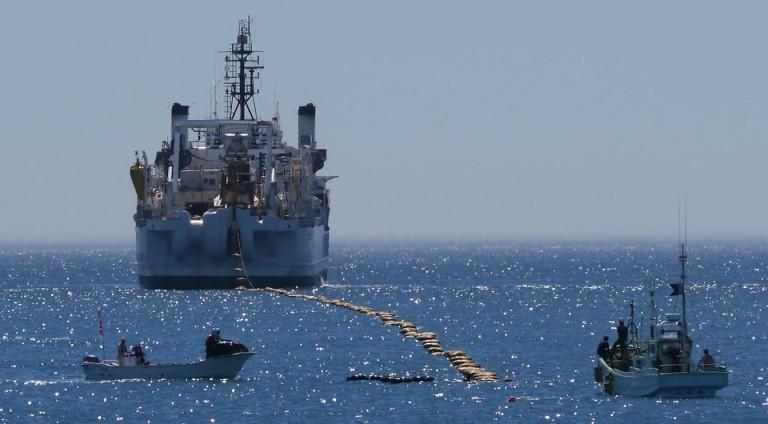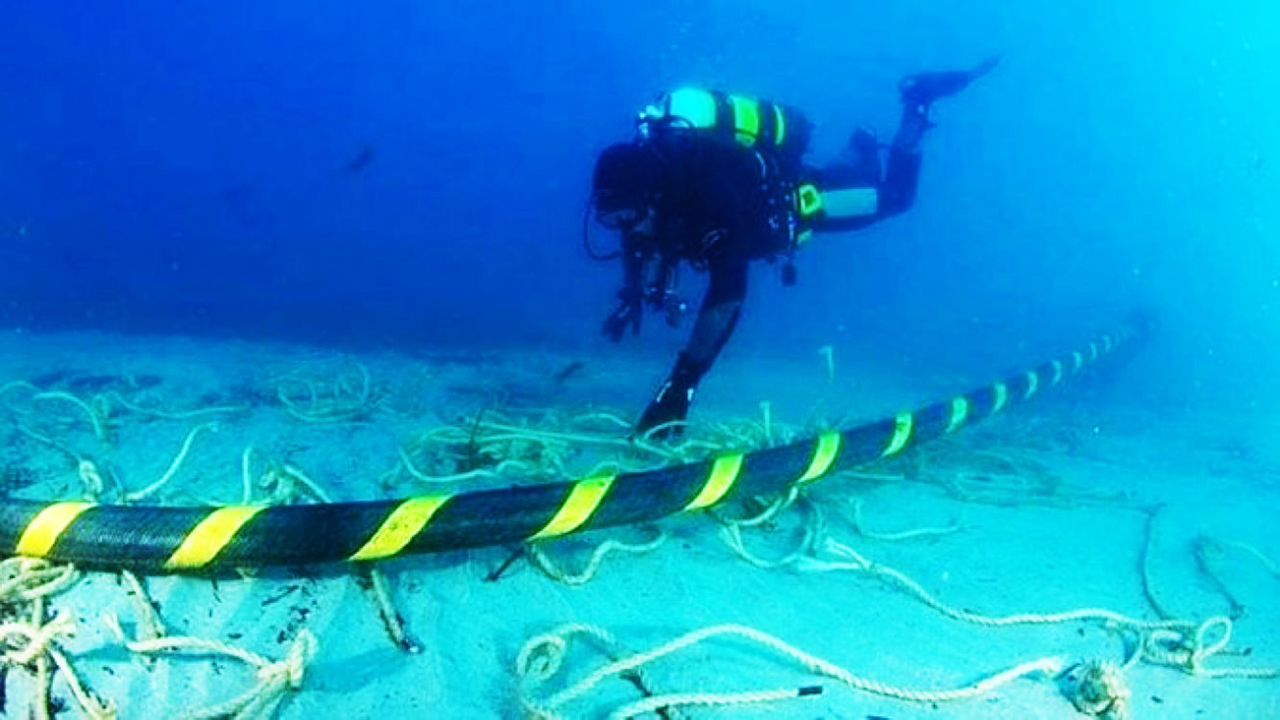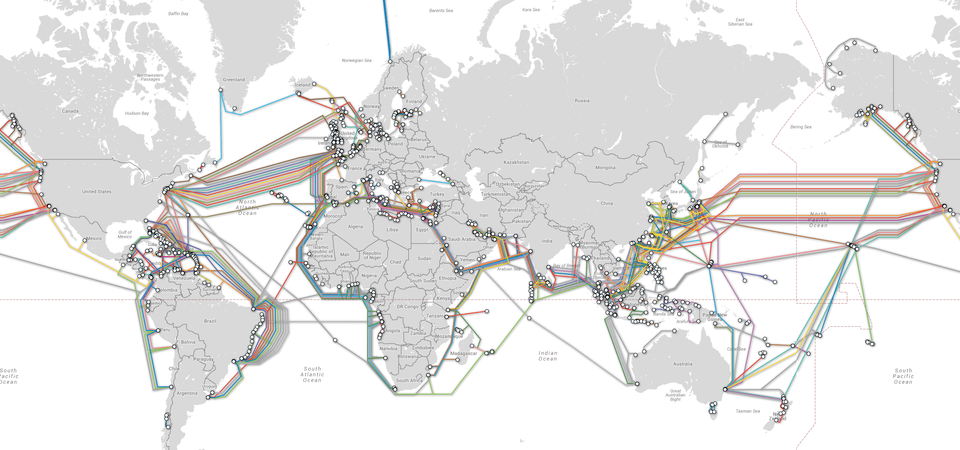A new op-ed in Bloomberg Quint has noted what the United States should really be worried about regarding Beijing’s intentions after a year of tense China-US Navy encounters in the South China Sea. This potential threat, which is “far harder to discern,” involves the world’s some 380 underwater cables carrying more than 95% of all data and voice traffic between the continents. Could China be stealthily hacking them? It is certainly now in a better position to do so.
The piece details how the Chinese conglomerate Huawei Technologies — already at the center of a broader US-China dispute over theft of trade secrets and unlawful dealings with sanctioned regimes like Iran — now has contracts to construct or improve nearly 100 submarine cables globally.

In what sounds like a quick pivot away from now deflated ‘Russiagate’ (which seemed to also involve bi-monthly articles suggesting Putin was ever ready to cut the world’s submerged internet cables), western intelligence officials are now sounding the alarm over Beijing’s increased access and influence over such key global communications infrastructure.
The report summarizes the view of “Western intelligence professionals” in the following:
Just as the experts are justifiably concerned about the inclusion of espionage “back doors” in Huawei’s 5G technology, Western intelligence professionals oppose the company’s engagement in the undersea version, which provides a much bigger bang for the buck because so much data rides on so few cables.
The report notes further that last year Huawei Marine Networks in a joint project with China Unicorn, a state-controlled telecom operator, successfully laid a cable running nearly 4,000 miles from Brazil to Cameroon, and there’s plans for greater involvement in global internet traffic cables which would necessitate cooperating and in some case competing with US internet giants such as Google and Facebook, who lease or buy vast cable networks from companies that constructed them, whether private or state-owned.
The WSJ observed last month, “Chinese company Huawei is embedding itself into cable systems that ferry nearly all of the world’s internet data.”
Map Of Underwater Cables That Supply The Worlds Internet, via MapPorn
Amidst the debate and resulting US official restriction on federal agencies using Huawai’s 5G equipment for fear of vulnerability to Chinese hacking, underwater internet infrastructure constructed by Huawai could prove the most sensitive global backdoor.
The report continues:
Naturally, Huawei denies any manipulation of the cable sets it is constructing, even though the US and other nations say it is obligated by Chinese law to hand over network data to the government…
A similar dynamic is playing out underwater. How can the US address the security of undersea cables? There is no way to stop Huawei from building them, or to keep private owners from contracting with Chinese firms on modernizing them, based purely on suspicions. Rather, the US must use its cyber- and intelligence-gathering capability to gather hard evidence of back doors and other security risks. This will be challenging — the Chinese firms are technologically sophisticated and entwined with a virtual police state.
One of the more bizarre scenarios that the report floats is the possibility of submarines to “tap” the cables externally. This has long been discussed among military and intelligence analysts regarding Russia, but increasingly Beijing will come under scrutiny.

One of those analysts, US Admiral Jamie Foggo, identified as a career submariner, told Bloomberg Quint: “Underwater cables are part of our critical infrastructure and essential to the global economy. The US must protect the integrity and security of them as surely as we provide international freedom of the high seas.”
via ZeroHedge News http://bit.ly/2uWF3ft Tyler Durden
